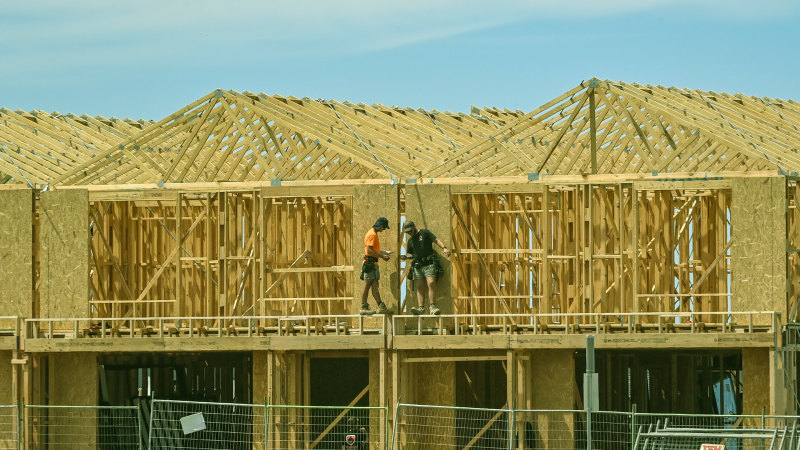
The Australian federal government has announced the formation of a new “strike team” aimed at expediting the approval of over 26,000 homes currently stalled due to environmental assessments. This initiative is part of a broader strategy to meet the ambitious target of building 1.2 million new homes by 2029. The measures, which include a temporary pause on changes to the National Construction Code and the integration of artificial intelligence to streamline assessments, will take effect immediately following discussions at this week’s economic reform roundtable.
During the roundtable, stakeholders highlighted the urgent need for reforms in housing approvals and construction processes. The government’s National Housing Accord, introduced after the 2022 election, aims to address the housing shortage, but progress has been slow. According to the National Housing Supply and Affordability Council, the government is projected to fall 262,000 dwellings short of its target.
Pause on National Construction Code Changes
To mitigate this shortfall, the government has decided to implement a four-year pause on amendments to the National Construction Code, a comprehensive set of regulations that governs various aspects of building standards. This decision comes in response to criticisms regarding the code’s complexity, which many in the construction industry argue has hindered the timely development of new housing.
Clare O’Neil, the Housing Minister, has been vocal about the need to simplify housing approvals. During her tenure, she has made commitments to streamline processes without compromising on quality. In a recent statement, she emphasized, “We want builders on site, not filling in forms to get their approval.”
The pause on changes will take effect after the release of this year’s edition of the code. During this period, the government intends to explore the integration of artificial intelligence to enhance user navigation through the code, potentially improving the efficiency of updates in the future.
Focus on Environmental Assessments
In addition to pausing code changes, a new strike team will be established within the Department of Climate Change, Energy, the Environment and Water. This team will prioritize the fast-tracking of environmental approvals for the homes currently in limbo. Although housing projects must still adhere to environmental regulations, developments deemed to have “robust” applications will receive expedited assessments.
The government will also investigate whether artificial intelligence can assist in accelerating environmental approvals for residential projects, although specific implementation details remain unclear. This approach aims to ensure that while housing approvals are expedited, critical environmental protections remain intact.
O’Neil noted that the changes have garnered support from the Property Council of Australia, highlighting a collaborative effort to address the ongoing housing crisis. She reiterated the government’s commitment to facilitating the construction of quality homes while maintaining essential standards.
With these initiatives, the Australian government is taking significant steps to address the pressing housing crisis, which has been described as a generational issue. As the housing landscape evolves, the focus will remain on balancing the need for rapid development with the importance of sustainable practices and quality assurance.






